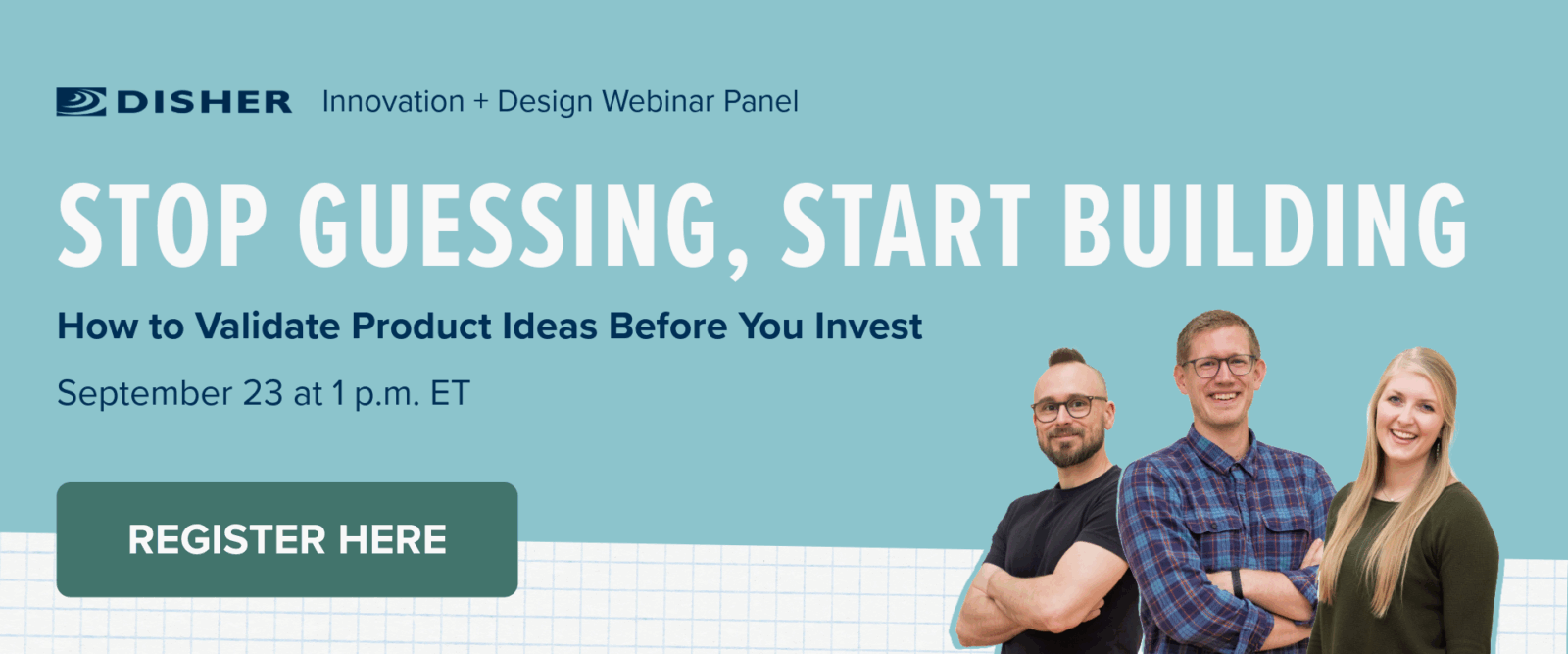
The product ideas most dangerous to your business aren’t the silly ones. They’re the almost-good ones: the ones so attractive that you don’t notice the venomous stinger. A project we worked on a couple of years ago taught me this lesson in a hard way.
It was a domestic boiler concept that had everything going for it: passionate founders, clear market need, proven new technology, and eager investors. It was a winner from every angle except the most fundamental one: the laws of physics.
When we built our first low-fidelity ‘digital twin’ prototype, it became clear: even at 100% efficiency, the idea couldn’t work for real-world usage. The customer canceled the project after months of effort and five digits of cost; a waste that two hours of honest physics calculations could have prevented.
Early Product Validation: How to Kill Bad Ideas and Build Confidence in Great Ones
Even with my experience, I still fall for the bias of loving my firstborn ideas, whether they’re winners or not. You won’t be immune to biases either. When stakeholders are excited, when the market seems ready, when the business model looks promising, that’s exactly when you need to get most ruthless about early validation. Don’t worry, your winning ideas will survive.
Eliminate Bad Product Concepts to Find the Winners
As a concept engineer, my job often feels like it should be “create lots of concepts ASAP”… but concepts are a dime a dozen. When I’m doing my job well, it feels more like I’m eliminating lots of concepts ASAP.
I like to think about product concepts as points and lines in a vast design space: hard ↔ soft, heavy ↔ light, simple ↔ complex; and even more abstract axes like social ↔ personal or cheap ↔ premium. Some axes are binary, like “vegan or not.” With all these variables the space of possible products is infinite, but good and beneficial products live in a tiny subset that’s hard to define.
That’s why my team has curated and developed a set of early-phase tools: to increase objectivity, enhance visibility, and broaden our brushstrokes. Using these tools, we can quickly eliminate large areas of inquiry and clarify possible paths through the design space.
With a methodical, broad-strokes approach, is there some risk of missing a tiny region of feasibility around a precariously viable product? Maybe so. But in an infinite constellation of ideas, maybe that’s ok—especially when the alternative is wasting time and money chasing secret perpetual motion machines.
Use Systematic Elimination to Save Time and Money
Now I start every project by asking the most basic, seemingly obvious questions first.
Especially for products involving cooling or heating, math upfront is critical. For tactile products like car seating, water fountains, or exercise equipment, you can gain incredible insight into risks with practically free materials like cardboard boxes, towels, or rubber bands. Don’t go much past plywood and a Sharpie for this, or you’ll risk getting false results by testing cosmetic variables at the same time.
Using these fast, real-world prototypes, we once helped a physical therapist identify an almost-good concept in only three weeks at four digits of cost. As soon as they stood on their blocky, lo-fi prototype they knew they could never sell the machine that seemed so right in their heads. They moved on to their next idea with six digits still in their pockets.
Get Started with Product Validation
Sometimes the most valuable starting point is immediate failure in the concept phase, so the market doesn’t fail your product later.
In our upcoming webinar on validating new products, my friends and I will share some of the tools we use at DISHER to systematically evaluate and eliminate dead ends before they consume resources. You’ll learn the questions we ask first, where low-fidelity testing methods can apply, and ways to overcome the psychological biases that keep us attached to almost-good ideas.

Written By:

Drew Morgan
Concept Engineer
DISHER Newsletter
Sign up to receive articles and insights, delivered monthly.
Schedule a no-committment project call
Reach out to discuss your project to find out if DISHER could be a good fit for you.
